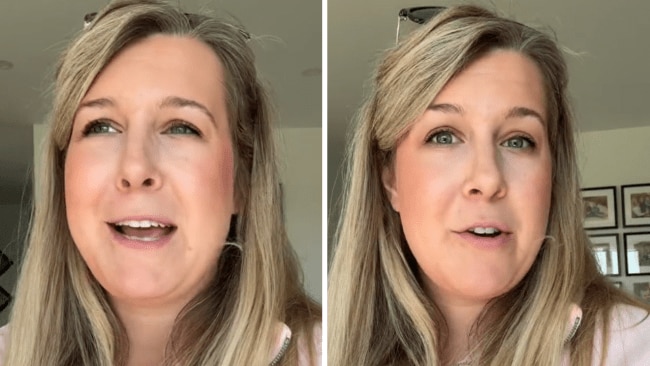‘I didn’t give birth to my son, so I didn’t feel like my feelings were valid’
“I found myself in the darkest depression I had felt. Archie’s birth wasn't what we imagined,” Daniel said. Please note: This article contains sensitive topics.
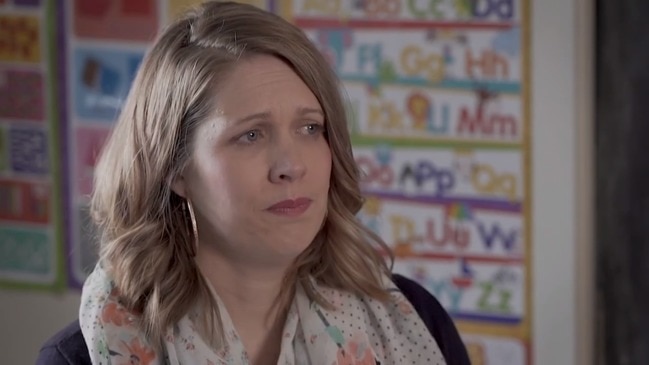
Family Life
Don't miss out on the headlines from Family Life. Followed categories will be added to My News.
Please note: This article contains sensitive topics.
For as long as Daniel can remember, he has lacked a good male role model; without someone to look up to, he struggled to find a sense of belonging.
It was something that trickled into his everyday life, failing at school and finding it hard to keep up.
Teachers would tell Daniel he would end up working at a fast food restaurant, asking customers if they “wanted fries with that.”
Want to join the family? Sign up to our Kidspot newsletter for more stories like this.
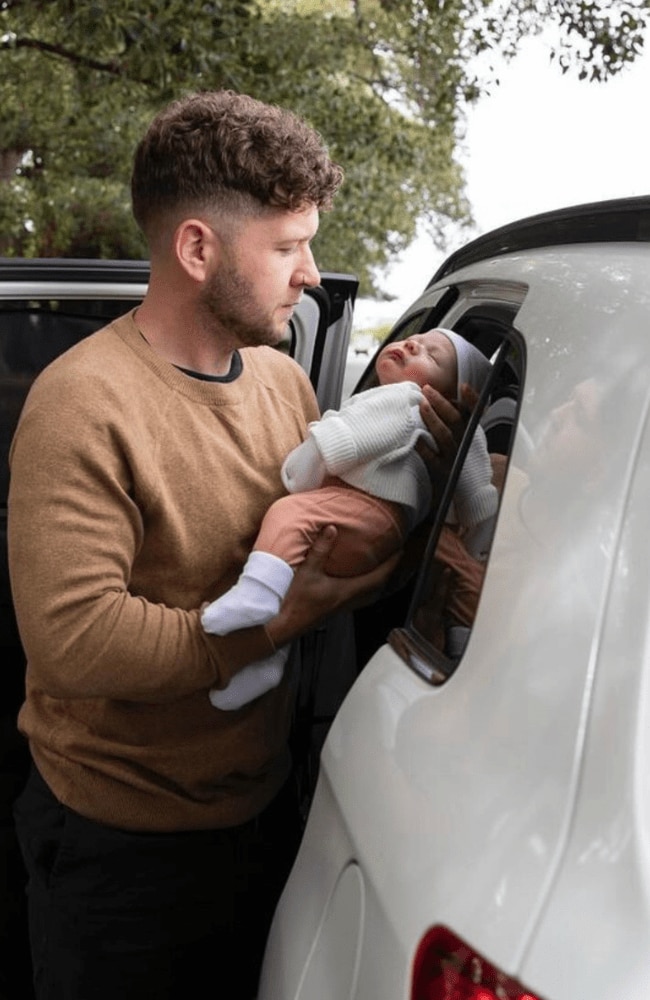
“I was too scared to ask for help”
“It was times like these really stand out, as it changed the perceptions I had of myself and who I was as a person,” the Sydney man told Kidspot.
It wasn’t until Daniel turned 27 that he was diagnosed with ADHD; suddenly, it was like a veil had lifted, and things started becoming clear.
RELATED: New dad shares his experience with PND after the birth of his baby
“I am the first person in my family to go to university and the first to purchase a house,” he said. “At work, I lead the way for disability and disadvantaged employment for a large infrastructure organisation and have won a few National Awards for what I do.”
Then, in 2021, his son Archie was born, and everything changed.
“I found myself in the darkest depression I had felt.,” he told Kidspot. “Archie’s birth wasn't what we imagined".
He and his partner had been together for seven years, and together, they created “some amazing moments".
Introducing our new podcast: Mum Club! Listen and subscribe wherever you get your podcasts so you never miss an episode.
“But it all changed after the birth,” Daniel admitted. “We both struggled with the situation. I wasn’t prepared to care for Archie full-time.”
The first month of Archie’s life was spent in the hospital, with Daniel caring for his newborn almost exclusively while his partner recovered.
This put a serious strain on his relationship with his partner. Daniel, who describes himself as a “very social being”, suddenly found himself feeling isolated and detached from the rest of his support network.
“I stopped going out or connecting with friends,” he said. “My mental health was deteriorating, and I wasn’t able to see that unfolding before my eyes.”
He found himself crying “uncontrollably”, and his “internal monologue was constantly negative”; there was a sense of failure that the Sydney dad “couldn’t shake".
RELATED: Yes, men get perinatal depression too. I was one of them
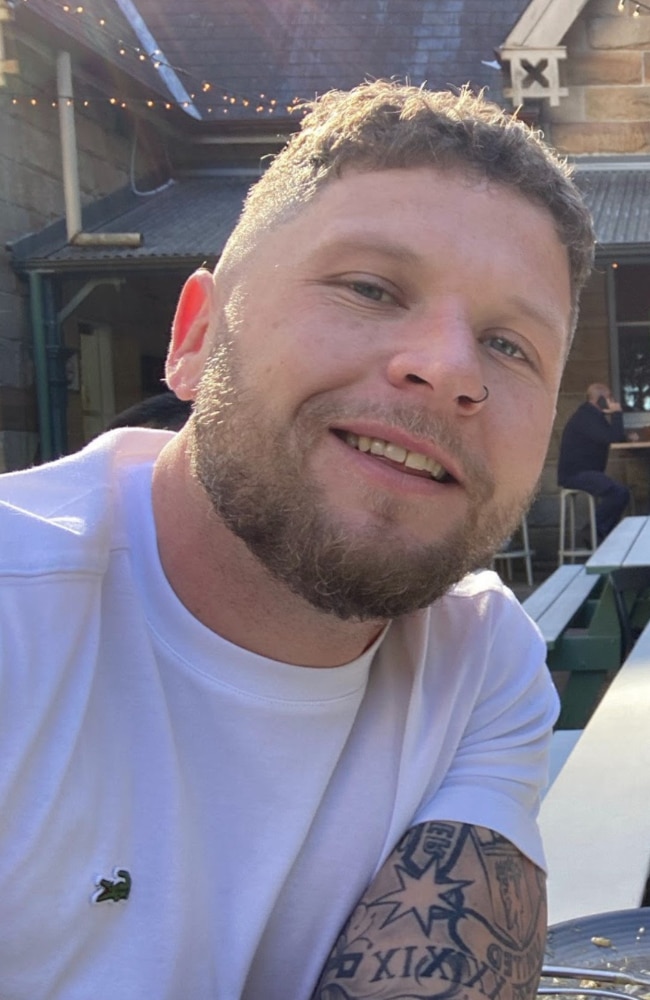
Looking back, Daniel now realises these were “the key signs to know I wasn’t doing OK".
“Having ADHD and lots of internal monologue, I couldn’t ever ‘switch off',” he said.
“I was too scared to ask for help. As the birth didn't happen to me, I felt my feelings were invalid, and that led me to struggle with having no voice or support.”
Three months after having Archie, he and his partner decided to split up; Daniel now had to navigate parenthood as a part-time dad.
“I was constantly judging myself and comparing myself to friends who managed to make their relationship work and wondering why I couldn’t,” he recalled. “I wondered, ‘Would I be a great dad? Will Archie resent me like I did my dad?’
“It was the toughest time I've faced in my life.”
It was Daniel’s sister, observing her brother struggle with his new life, who stepped in and “encouraged me to seek help.” She urged him to open up to her and have an open and honest conversation about his feelings.
“She was my saving grace because she heard me, validated my feelings, and assured me that things would get better,” Daniel said. “And they did.”
His sister, who “had a not-so-great birth” and is “an amazing mum” to his nephews, gave Daniel space to “have those hard conversations - the ones where I could cry and have someone hug me and tell me it would be okay".
“Seeing how it worked out for her reassured me that I still am a great man and a great dad. It was the situation and not me as a person,” he said.
The Sydney dad said it was “great to know I had support from people that genuinely loved and cared about me, but I needed to give that love to myself".
“Reflecting now, being able to get through the tough time in my life, and still managing to show up with a smile on my face and faith that I will be okay has helped me more than anything else ever has,” he continued.
“Each time I speak honestly and openly, in all parts of my life, I become a better person and better father to Archie.”
RELATED: Dad shares his story of suicide attempt, anxiety and depression
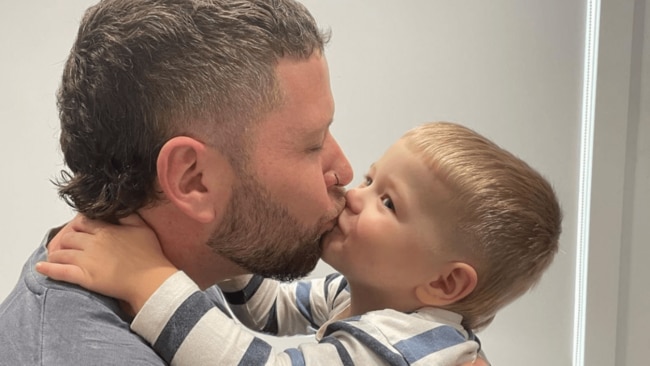
“Reach out early for support”
New research from Perinatal Anxiety & Depression Australia (PANDA) revealed that the risk of suicide is higher for men in the perinatal period (which can be up to a year after birth) than any other time.
Yet astonishingly, 45 per cent of Australian dads aren’t aware that men can suffer from post-natal depression (PND).
“Many dads in our community encounter stereotypes about fatherhood and masculinity, like needing to be their family’s financial provider and emotional ‘rock’ while their partner provides all infant care,” said Julie Borninkhof, chief executive officer at PANDA.
Early signs of PND may include dads feeling “unwelcome or excluded in antenatal classes or other care-related appointments.”
“These experiences can leave dads feeling ignored, unsure of themselves and their role, and less confident or capable as they transition to parenthood,” she said.
She recommends dads “reach out early for support – even before parents plan to conceive – so they have a strong support network around them from the beginning.”
“The sooner dad can get the right support for himself, the more likely he is to experience a quick recovery and be there to support the whole family.”
As for Daniel, while he may not be able to see his now two-and-a-half-year-old as often as he once could, having an honest conversation with someone helped shed new light on his life.
“I don’t take for granted the time we have together, and I know in my heart that I am a phenomenal dad with a soft, gentle, and accepting heart,” he said.
“My love for him is unconditional, regardless of anything he chooses to become in life - something I wished for every night as a child.”
More Coverage
Originally published as ‘I didn’t give birth to my son, so I didn’t feel like my feelings were valid’




